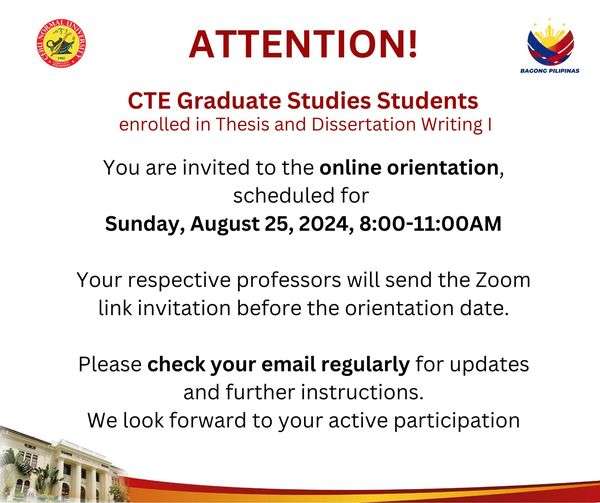ATTENTION | CTE Graduate Studies Students enrolled in Thesis and Dissertation Writing I You are invited to the online orientation, scheduled for Sunday, August 25,2024, 8:00-11:00AM Your respective professors will send the Zoom link invitation before the orientation date. Please check your email regularly for updates and further instructions. We look forward to your active participation.#alwayscrimsonandgold2024
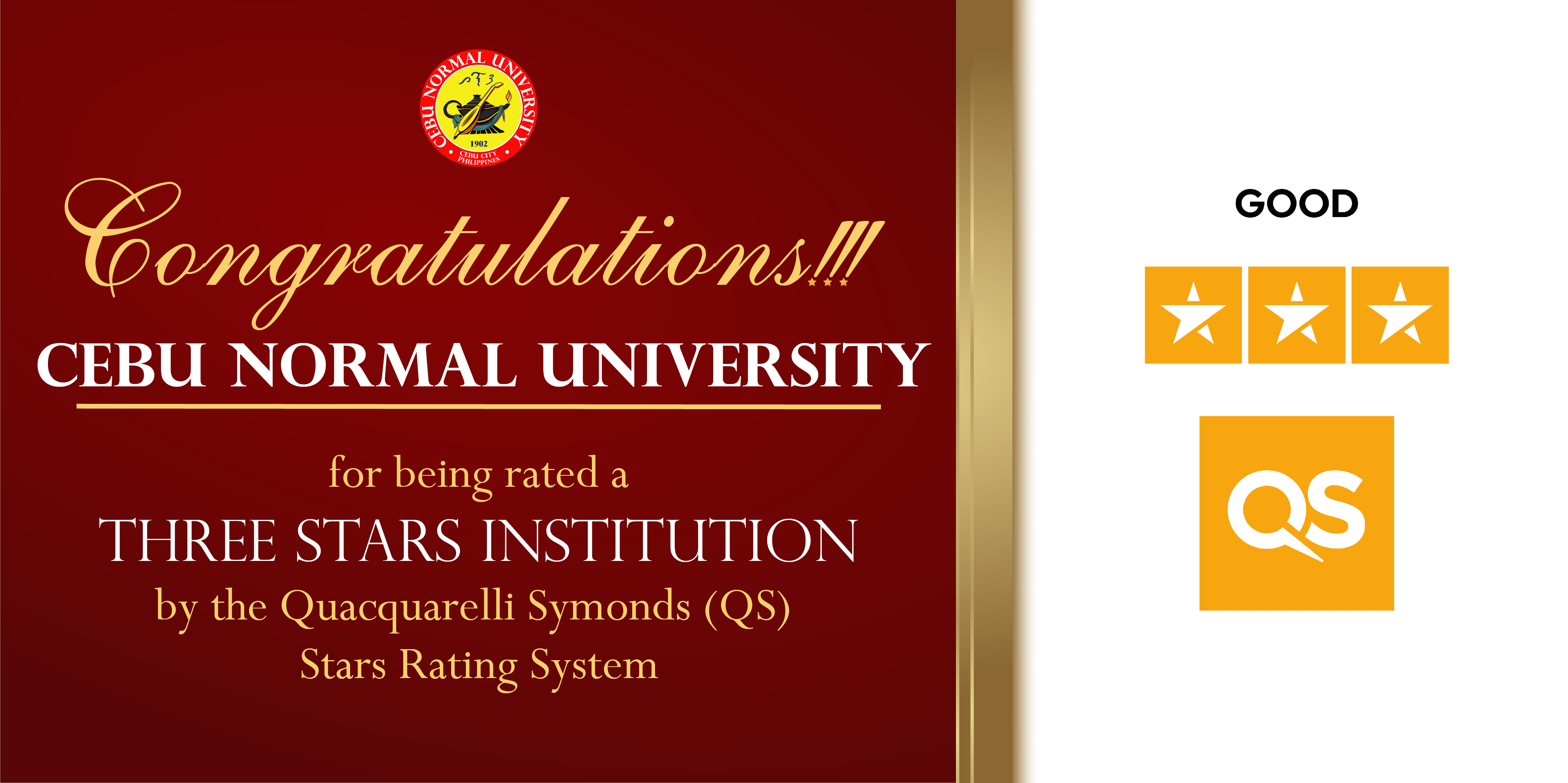
CNU acquires three-star rating in QS Stars
Cebu Normal University (CNU) moves forward with its vision as it was officially acclaimed as a Three (3) Stars Institution by the Quacquarelli Symond (QS) Stars Rating System on March 13, 2023. The leading multidisciplinary research university of education’s three (3) out of five (5) stars rating means that CNU is a “well-recognized [institution] nationally and continue reading : CNU acquires three-star rating in QS Stars
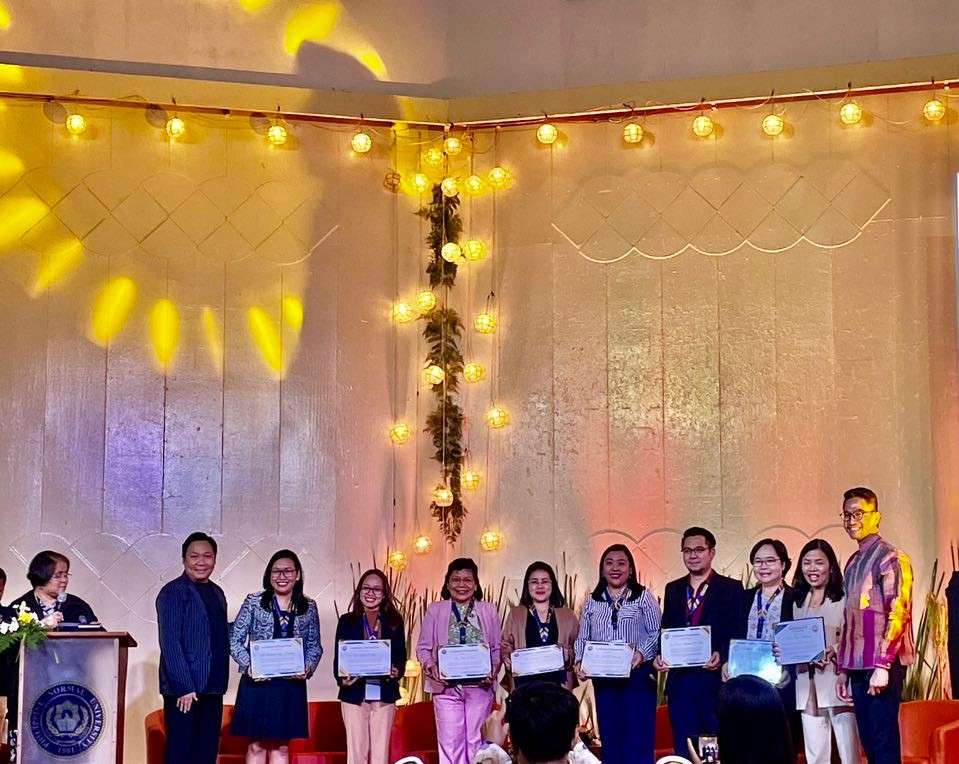
CNU presents research study on the Exploration of the Quality of Graduates of Teacher Education Institution
Cebu Normal University, a leading multidisciplinary research university in education, has championed the virtuous cycle of knowledge sharing and knowledge building in teacher education. The university has been identified as the partner institution for “Study II – An Exploration of the Quality of Graduates of Teacher Education Institution” as part of the Scoping Study on Philippine continue reading : CNU presents research study on the Exploration of the Quality of Graduates of Teacher Education Institution
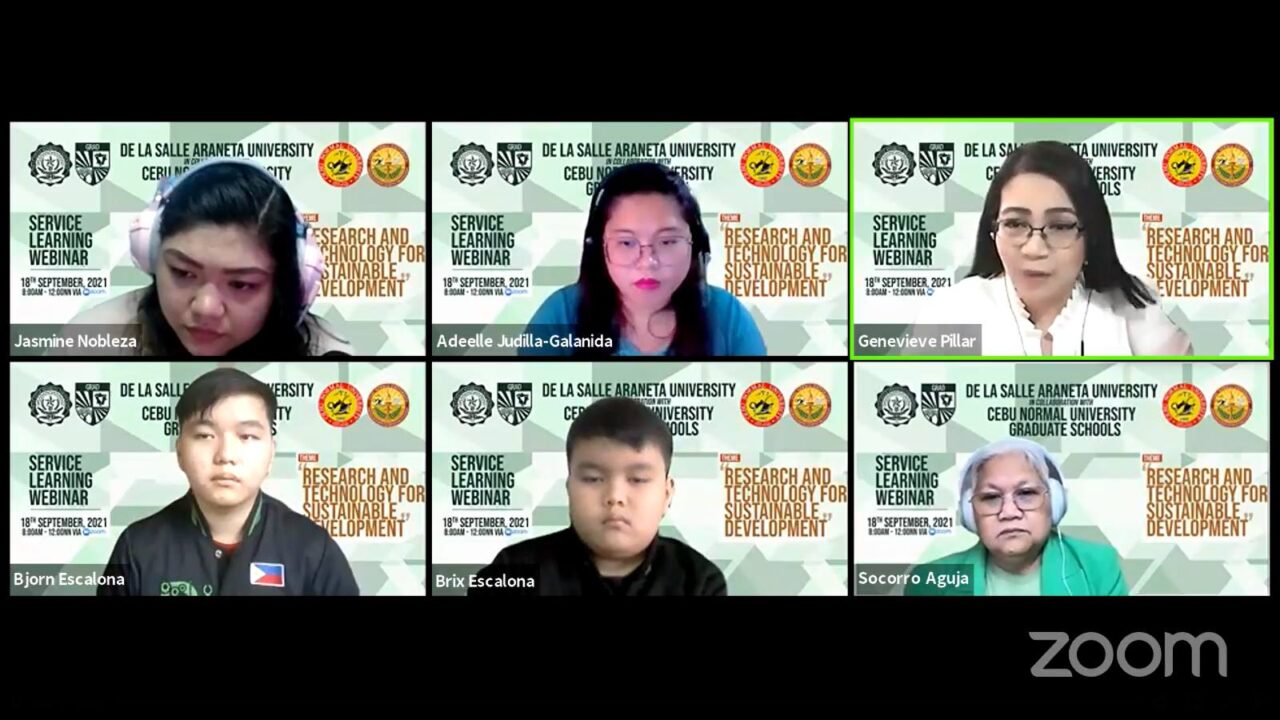
DLSAU, GRASSO conduct 1st service-learning webinar
Are you ready to take on the next century’s work? To address the futuristic needs of society, the De La Salle Araneta University (DLSAU) in collaboration with Cebu Normal University (CNU) Graduate School Students Organization (CNU-GRASSO) hosted their first Service-Learning Webinar last September 18, 2021, via Zoom and Facebook live. With the theme “Research and Technology for continue reading : DLSAU, GRASSO conduct 1st service-learning webinar
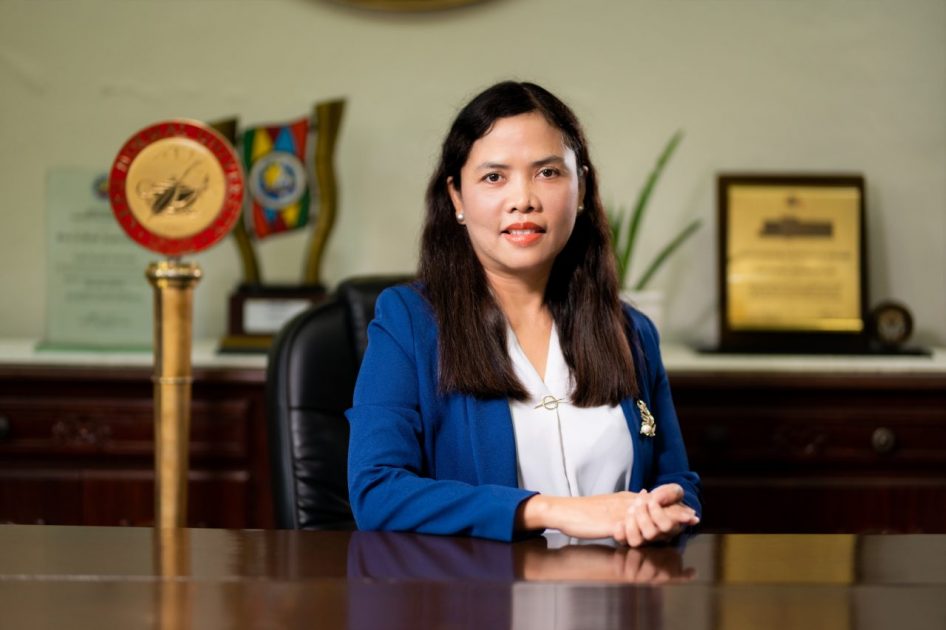
Excelsior: Dayagbil and Her ‘Ever Upward’ Direction
Under the leading lights of the outgoing university president, Cebu Normal University (CNU) had achieved a good number of recognitions and awards which catapulted the university’s name to top excellence. Crimson and gold glimmered during Dr. Filomena T. Dayagbil’s four-year term as a product of purposeful collaboration between the administration and stakeholders. To formalize continue reading : Excelsior: Dayagbil and Her ‘Ever Upward’ Direction
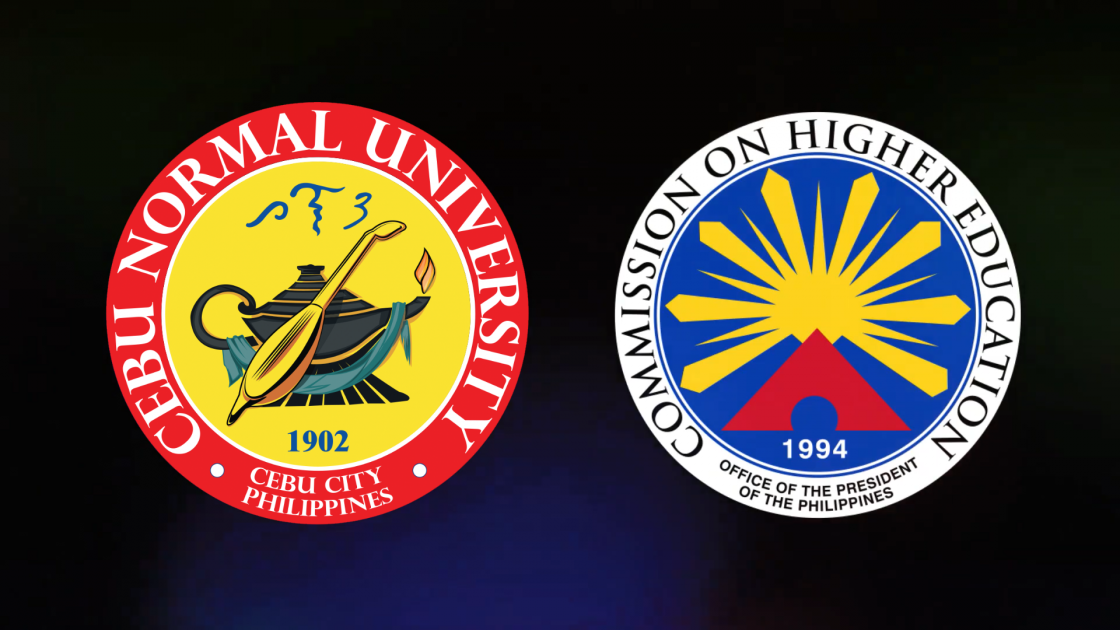
CNU flexible learning to get boost, thanks to CHED grants
Cebu Normal University is set to receive P7 million worth of grants from the Commission on Higher Education (CHED) that would enable the university to implement three projects. Two of these projects focus on improving flexible learning — the Flexible Learning Modality Training for Teacher Educators (FLMTTEd) with an allocation of over P2.5 million and continue reading : CNU flexible learning to get boost, thanks to CHED grants

